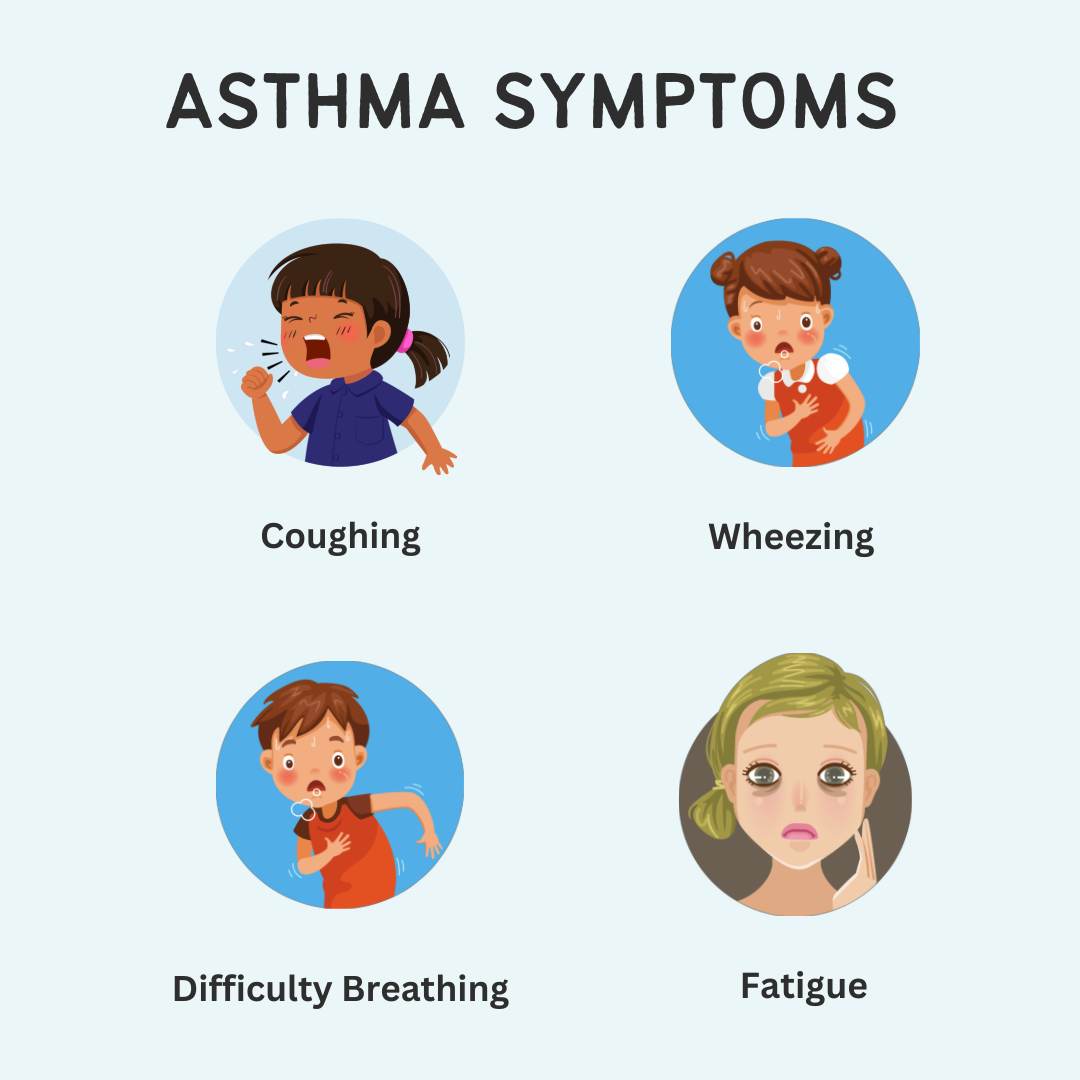“Breathing life into a healthier future: Unveiling the vital link between environmental factors and personal well-being.”
The impact of environmental factors on personal health, including air and water quality, is a significant concern in today’s world. The quality of the air we breathe and the water we consume can have profound effects on our overall well-being. Exposure to pollutants and contaminants in the environment can lead to various health issues, ranging from respiratory problems to waterborne diseases. Therefore, understanding and addressing the impact of environmental factors on personal health is crucial for promoting a healthier and sustainable future.
The Effects of Air Pollution on Personal Health
The Effects of Air Pollution on Personal Health
Air pollution is a significant environmental factor that can have a profound impact on personal health. The quality of the air we breathe is essential for our well-being, and when it becomes polluted, it can lead to a wide range of health problems. In this section, we will explore the various ways in which air pollution affects personal health and discuss some of the most common health issues associated with poor air quality.
One of the most immediate and noticeable effects of air pollution is respiratory problems. When we inhale polluted air, it can irritate our respiratory system, leading to coughing, wheezing, and shortness of breath. Prolonged exposure to air pollution can also increase the risk of developing chronic respiratory conditions such as asthma and chronic obstructive pulmonary disease (COPD). These conditions can significantly impact a person’s quality of life and may require long-term medical treatment.
Air pollution is not only harmful to our respiratory system but can also have detrimental effects on our cardiovascular health. Studies have shown that exposure to air pollution can increase the risk of heart attacks, strokes, and other cardiovascular diseases. The fine particles and toxic gases present in polluted air can enter our bloodstream and cause inflammation, leading to the development of plaque in our arteries. Over time, this can narrow the arteries and restrict blood flow, increasing the risk of cardiovascular events.
Furthermore, air pollution can also have adverse effects on our immune system. When we breathe in polluted air, our body’s defense mechanisms may be compromised, making us more susceptible to infections and diseases. Studies have shown that exposure to air pollution can weaken our immune response, making it harder for our bodies to fight off infections. This can lead to an increased risk of respiratory infections, allergies, and even certain types of cancer.
Children and the elderly are particularly vulnerable to the effects of air pollution. Their developing respiratory and immune systems make them more susceptible to the harmful effects of polluted air. Children exposed to air pollution may experience stunted lung development, which can have long-term consequences for their respiratory health. Similarly, the elderly, who often have pre-existing health conditions, may experience exacerbated symptoms and a higher risk of complications due to air pollution.
It is important to note that the impact of air pollution on personal health is not limited to physical health alone. Poor air quality can also have significant mental health effects. Studies have shown that exposure to air pollution can increase the risk of mental health issues such as depression, anxiety, and cognitive decline. The constant exposure to polluted air can lead to chronic stress, which can have a detrimental effect on our mental well-being.
In conclusion, air pollution is a major environmental factor that can have a profound impact on personal health. The effects of air pollution on personal health are wide-ranging and can include respiratory problems, cardiovascular diseases, weakened immune system, and mental health issues. It is crucial to address air pollution through effective environmental policies and individual actions to protect our health and well-being. By improving air quality, we can reduce the burden of disease and create a healthier environment for ourselves and future generations.
The Influence of Water Quality on Personal Health
Water is an essential resource for all living beings, and its quality plays a crucial role in maintaining personal health. The influence of water quality on personal health cannot be overstated, as contaminated water can lead to a range of health issues. In this section, we will explore the impact of environmental factors on water quality and how it affects our well-being.
One of the primary environmental factors that affect water quality is pollution. Industrial activities, agricultural practices, and improper waste disposal can all contribute to water pollution. When pollutants such as chemicals, heavy metals, and pathogens enter water sources, they can contaminate the water and make it unsafe for consumption.
Drinking contaminated water can have severe consequences for personal health. Pathogens present in polluted water can cause waterborne diseases such as cholera, typhoid, and dysentery. These diseases can lead to symptoms like diarrhea, vomiting, and dehydration, which can be life-threatening, especially for vulnerable populations such as children and the elderly.
Furthermore, exposure to certain chemicals and heavy metals found in polluted water can have long-term health effects. For example, prolonged exposure to lead in drinking water can lead to developmental issues in children and neurological problems in adults. Similarly, exposure to pesticides and fertilizers in contaminated water sources can increase the risk of cancer and reproductive disorders.
In addition to pollution, another environmental factor that affects water quality is climate change. Rising temperatures and changing precipitation patterns can alter the availability and quality of water sources. Droughts and heatwaves can lead to water scarcity, forcing people to rely on unsafe water sources. Moreover, increased rainfall and flooding can result in the contamination of water sources with sewage and other pollutants.
The impact of climate change on water quality extends beyond drinking water. Changes in temperature and precipitation patterns can also affect the quality of water bodies such as lakes, rivers, and oceans. Warmer water temperatures can promote the growth of harmful algal blooms, which produce toxins that can contaminate water and pose a threat to human health. Additionally, increased rainfall can lead to runoff of pollutants from agricultural fields and urban areas into water bodies, further degrading water quality.
To mitigate the impact of environmental factors on water quality and personal health, various measures can be taken. Firstly, it is essential to implement strict regulations and policies to control pollution from industrial and agricultural activities. This can include proper waste management practices, the use of eco-friendly technologies, and the enforcement of water quality standards.
Furthermore, investing in water treatment infrastructure is crucial to ensure access to safe drinking water. Water treatment plants can remove contaminants and pathogens from water sources, making it safe for consumption. Additionally, promoting awareness and education about the importance of clean water and proper hygiene practices can help prevent waterborne diseases.
Addressing the challenges posed by climate change requires a multi-faceted approach. Implementing sustainable water management practices, such as rainwater harvesting and water conservation, can help mitigate the impact of water scarcity. Additionally, reducing greenhouse gas emissions and transitioning to renewable energy sources can help mitigate climate change and its effects on water quality.
In conclusion, the influence of water quality on personal health is significant. Pollution and climate change are two key environmental factors that affect water quality and pose risks to human health. By implementing effective measures to control pollution, investing in water treatment infrastructure, and addressing climate change, we can ensure access to clean and safe water, promoting personal health and well-being.
Environmental Factors and Their Impact on Personal Health
Environmental Factors and Their Impact on Personal Health
The environment we live in plays a crucial role in our overall well-being. From the air we breathe to the water we drink, environmental factors have a direct impact on our personal health. In this article, we will explore the effects of air and water quality on our bodies and discuss the importance of maintaining a clean and healthy environment.
Air quality is a significant environmental factor that can greatly affect our health. The air we breathe contains various pollutants, such as particulate matter, ozone, and carbon monoxide. These pollutants can have detrimental effects on our respiratory system, leading to respiratory diseases such as asthma and chronic obstructive pulmonary disease (COPD). Additionally, poor air quality has been linked to an increased risk of cardiovascular diseases and even certain types of cancer.
One of the main sources of air pollution is the burning of fossil fuels for energy production and transportation. Industrial activities and the use of certain chemicals also contribute to air pollution. To mitigate the negative effects of air pollution on personal health, it is crucial to reduce our reliance on fossil fuels and promote cleaner energy alternatives. Additionally, implementing stricter regulations on industrial emissions and promoting sustainable practices can help improve air quality and protect our health.
Water quality is another environmental factor that has a significant impact on personal health. Contaminated water can contain harmful substances such as bacteria, viruses, heavy metals, and chemicals. Consuming contaminated water can lead to various waterborne diseases, including diarrhea, cholera, and hepatitis. Prolonged exposure to contaminated water can also have long-term effects on our health, such as kidney damage and certain types of cancer.
Ensuring access to clean and safe drinking water is essential for maintaining good health. Proper water treatment and sanitation systems are crucial in removing contaminants and providing safe drinking water to communities. Regular monitoring of water sources and implementing measures to prevent pollution are also necessary to protect public health. Additionally, promoting awareness about the importance of clean water and encouraging responsible water usage can help preserve this vital resource and safeguard our health.
Apart from air and water quality, other environmental factors can also impact personal health. For example, exposure to excessive noise levels can lead to hearing loss, stress, and sleep disturbances. The presence of hazardous substances in soil and food can also pose health risks if ingested or absorbed through the skin. Climate change, another environmental concern, can have wide-ranging effects on personal health, including increased heat-related illnesses, the spread of infectious diseases, and food and water scarcity.
To address these environmental factors and their impact on personal health, a multi-faceted approach is necessary. This includes implementing policies and regulations to reduce pollution, promoting sustainable practices, and investing in clean energy sources. Education and awareness campaigns can also play a crucial role in empowering individuals to make informed choices that protect their health and the environment.
In conclusion, environmental factors such as air and water quality have a significant impact on personal health. Poor air quality can lead to respiratory and cardiovascular diseases, while contaminated water can cause waterborne illnesses and long-term health effects. It is essential to prioritize clean and healthy environments by reducing pollution, promoting sustainable practices, and ensuring access to safe drinking water. By taking proactive measures, we can protect our health and create a better future for generations to come.In conclusion, environmental factors such as air and water quality have a significant impact on personal health. Poor air quality, caused by pollutants and toxins, can lead to respiratory problems, allergies, and even chronic diseases. Similarly, contaminated water can result in various health issues, including gastrointestinal illnesses and infections. It is crucial to address and mitigate these environmental factors to safeguard personal health and well-being.




